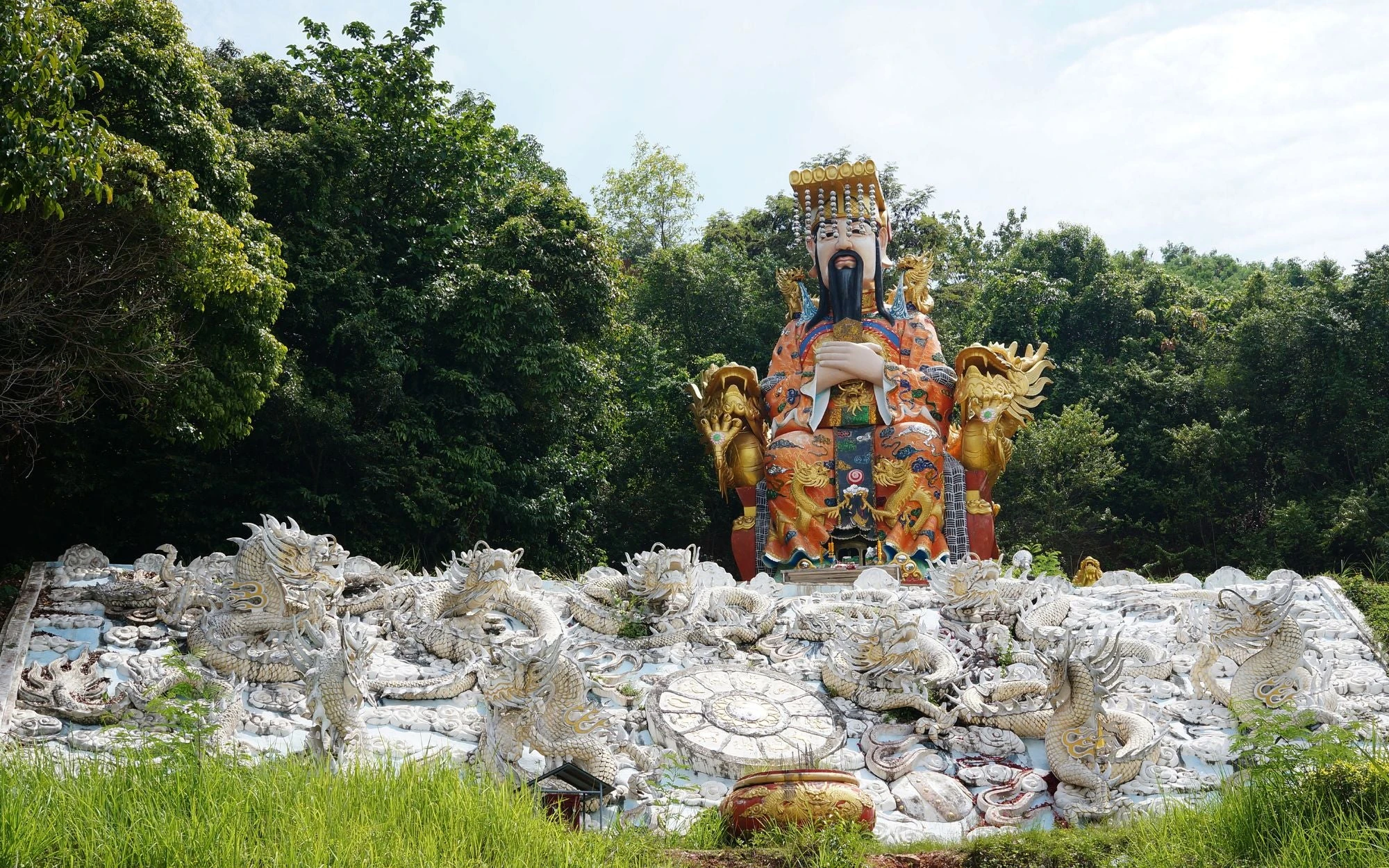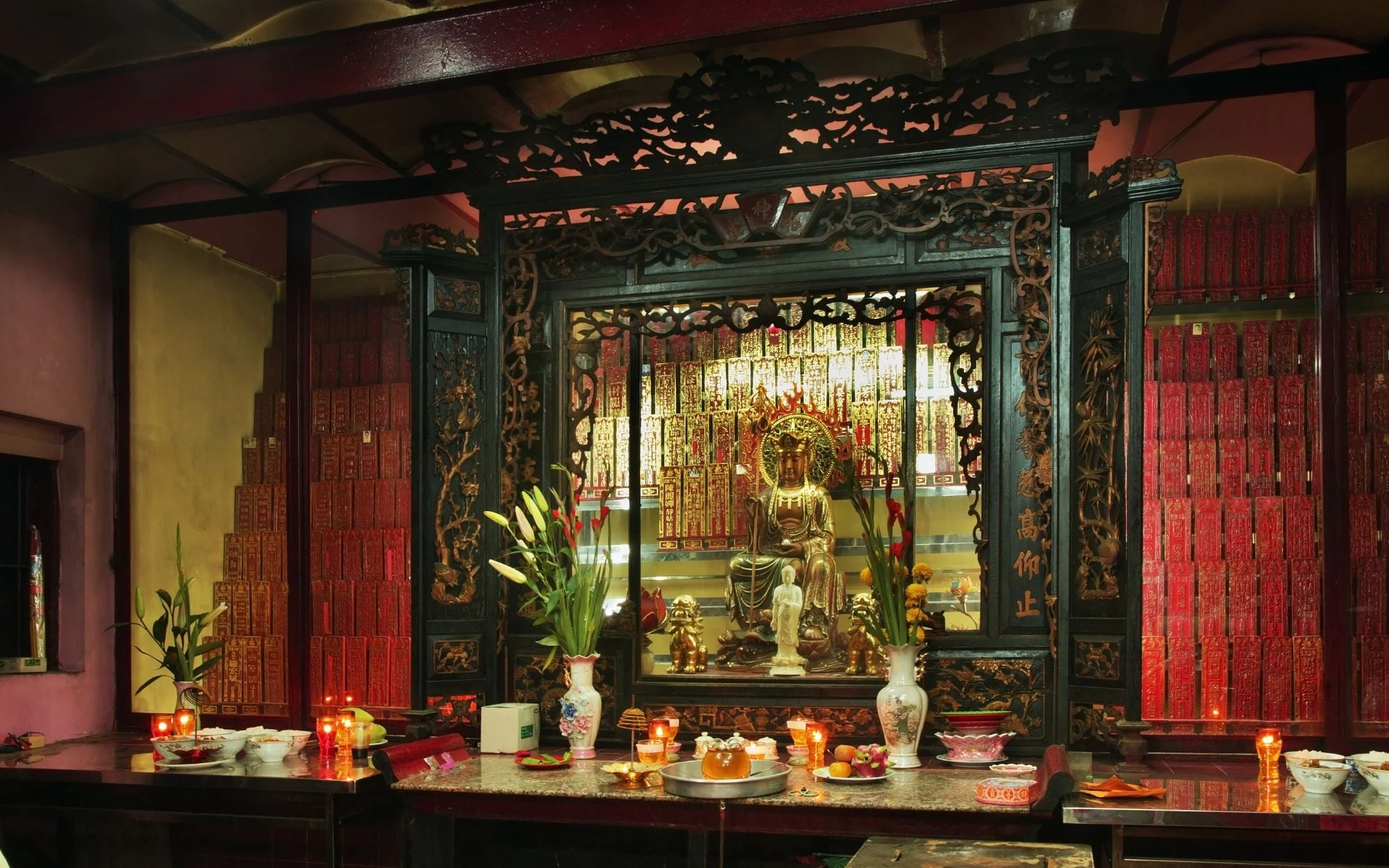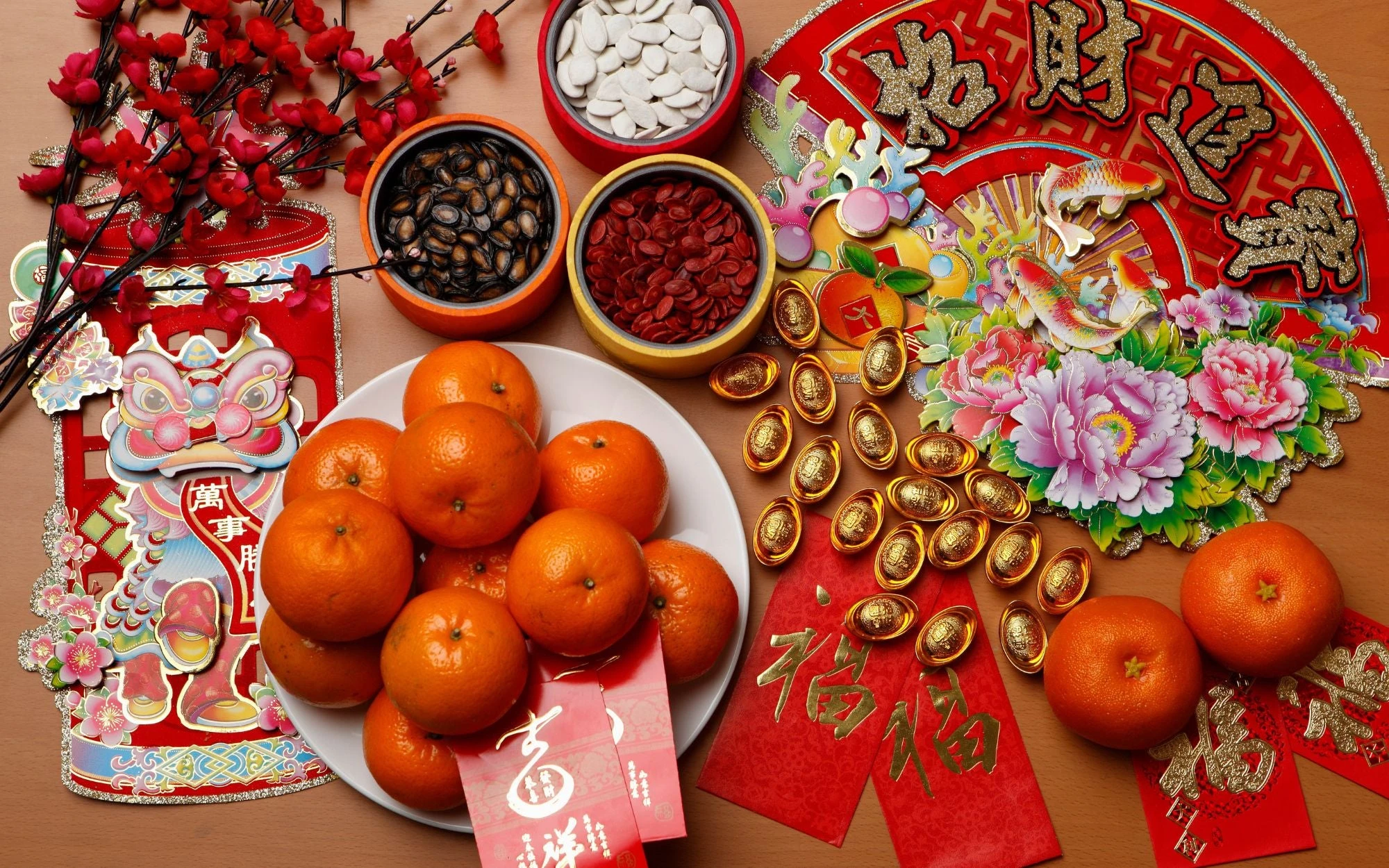In this article
- Who is the Jade Emperor?
- Unveiling the Identity of the Jade Emperor
- Significance in Chinese Mythology
- Mythology and Legends Surrounding the Jade Emperor
- Role and Characteristics in Chinese Customs
- “God of gods” status in Chinese belief systems
- Cultural Importance and Practices Related to the Jade Emperor
- The Takeaway
- Other topics you may like
- Hand-Picked Items Just For You
- You’ve Shown Interest In These Items
Who is the Jade Emperor?
The Jade Emperor is considered the supreme deity in Chinese mythology. This revered figure holds the throne as the ruler of both heavens and earth, commanding respect and admiration from believers. Associated with wisdom and power, the Jade Emperor plays a significant role in Chinese culture and folklore.
In Chinese mythology, it is believed that the Jade Emperor was born as Yu Huang Shangdi, also known as the “August Personage of Jade.” Legend has it that he ascended to his divine position after a fierce battle against evil forces. As the father of all creation, he administers justice and maintains peace in his celestial court.
One fascinating aspect of this mythological tale is the fragrant cliff where offerings are made to honor the heavenly emperor. This sacred site symbolizes reverence for his divine presence and serves as a spiritual connection between mortals and immortals.
The Jade Emperor’s influence extends far beyond mythical realms. His wisdom guides human beings through life’s challenges, inspiring them to seek harmony and balance in their actions. Join us as we delve deeper into this captivating deity’s story and uncover more about his role in shaping Chinese culture.
Unveiling the Identity of the Jade Emperor
The Jade Emperor, also known as Yu Huang Shangdi or Yuhuang Dadi, is a celestial ruler whose identity is shrouded in mystery and revered in Chinese mythology. Let’s delve into the details to understand who this supreme sovereign truly is.
Known by Different Names
The Jade Emperor goes by various names across different regions. One of his most common names is Yu Huang Shangdi, which translates to “Supreme Sovereign.” In some areas, he is referred to as Yuhuang Dadi, meaning “Jade Emperor” or “Great Jade Emperor.” These different names reflect the widespread influence and significance of this divine figure.
Beyond Mortal Comprehension
The Jade Emperor represents the pinnacle of divine authority in Chinese mythology. He is believed to be a celestial being whose power surpasses human understanding. Just like young lovers trying to grasp the vastness of the entire kingdom, human beings cannot fully comprehend the magnitude of his rule.
The Divine Ruler
In Chinese mythology, the Jade Emperor presides over a heavenly court with countless officials and ministers. His role involves making important decisions that impact both celestial and earthly affairs. Picture him as a wise leader who guides his realm with wisdom and fairness.
Festivals and Celebrations
The Jade Emperor’s birthday is celebrated on the ninth day of the first lunar month in China. During this time, people offer prayers and perform rituals to honor him. During Chinese New Year celebrations, it is believed that he returns from his heavenly abode to inspect human affairs for any misdeeds.
Symbolism and Representations
Symbolically, the Jade Emperor embodies light and purity. His association with jade signifies his transcendence beyond mortal limitations. He is often depicted wearing robes adorned with dragons—a symbol of power—and carrying a golden rod or peach symbolizing longevity.
Understanding who the Jade Emperor is allows us to appreciate the rich cultural and mythological traditions that have been passed down through generations. His role as a celestial ruler beyond human understanding reminds us of the vastness and complexity of the world we inhabit.
Significance in Chinese Mythology

In Chinese mythology, the Jade Emperor holds a central role and is highly revered. Let’s explore the significance of the Jade Emperor and why he is worshiped by many.
Central Role in Creation Myths
The Jade Emperor plays a vital role in various creation myths of Chinese folklore. He is believed to have created the universe, along with other gods. According to these legends, he established order and harmony in the world, bringing balance to all things. The stories surrounding his creation emphasize his power and importance in shaping the cosmos.
Controls Destiny and Fate
One of the key aspects associated with the Jade Emperor is his control over destiny and fate. It is believed that he oversees every individual’s life path, determining their fortune and misfortune. People often pray to him, seeking blessings for a prosperous future or asking for guidance during challenging times. The concept of predestination is deeply ingrained in Chinese culture, with the Jade Emperor being seen as the ultimate arbiter of one’s destiny.
Protector of the Universe
The Jade Emperor is worshiped as a protector of heaven and earth and their inhabitants. He safeguards against evil spirits and negative forces that may disrupt cosmic balance. Many temples dedicated to him can be found across China, where people offer prayers for protection and seek his divine intervention in warding off malevolent influences.
Symbolizes Order and Harmony
In Chinese mythology, the Jade Emperor represents order and harmony. His position as an authority figure exemplifies leadership qualities such as fairness, wisdom, and justice. As a symbol of unity among divinities, he serves as an inspiration for individuals to strive for balance within themselves and society.
Mythology and Legends Surrounding the Jade Emperor
Legend of the Great Race Determining Animal Zodiac Signs
In Chinese mythology, there is a popular myth known as the Great Race. It is said that the Jade Emperor organized a race to determine which animals would be included in the Chinese zodiac. The story goes that twelve animals competed in a race, with each animal representing a specific year. The order in which they finished determined their place in the zodiac cycle.
Stories of Mortal Heroes Ascending to Immortality Under His Guidance
According to folklore, the Jade Emperor played a significant role in helping mortal heroes ascend to immortality. These heroes were often individuals who had lived exemplary lives or accomplished great deeds. With the guidance and blessings of the Jade Emperor, they were able to transcend their mortal existence and become gods.
Tales of Divine Beings Serving as Ministers in His Celestial Court
The celestial court of the Jade Emperor is believed to be filled with various divinities serving as ministers and officials. These include dragons, heavenly grandfathers, celestial queen mothers, and many others. They assist the Jade Emperor in governing and maintaining order within the heavens.
Believed to Grant Wishes on Specific Occasions
The Jade Emperor is regarded as a powerful deity who has the ability to grant wishes on specific occasions. People often visit shrines dedicated to him during festive celebrations or important events such as Lunar New Year. They offer prayers and make requests for good fortune, health, success, or other desires.
Myth Surrounding Pixiu and the Jade Emperor
One fascinating myth involves Pixiu, a mythical creature known for its ability to attract wealth and prosperity. According to legend, Pixiu was once an evil entity that caused havoc among people. However, it encountered the Jade Emperor who transformed it into a fortune beast with its mouth sealed shut—preventing it from causing harm again.
The mythology and legends surrounding the Jade Emperor are an integral part of Chinese folklore. From the Great Race determining animal zodiac signs to stories of mortal heroes ascending to immortality, these tales capture the imagination and provide valuable lessons about virtue, courage, and divine intervention. The Jade Emperor’s role as a wish-granting deity and his association with mythical creatures like Pixiu further add to his significance in Chinese culture.
Role and Characteristics in Chinese Customs

In Chinese customs, the Jade Emperor holds a significant role and is honored during important festivals like Lunar New Year. People offer various items to seek blessings and good fortune from him. The Jade Emperor is often depicted with a long white beard and regal attire, symbolizing his wisdom and authority.
Honored during important festivals
During festivals, such as the Lunar New Year, the Jade Emperor is highly respected and revered by the Chinese people. They believe that by paying homage to him, they can receive his blessings for a prosperous year ahead. It is common for families to set up altars or shrines dedicated to the Jade Emperor in their homes during these festivities.
Offerings made to seek blessings
To show their reverence, people offer various items to the Jade Emperor as a sign of respect and gratitude. These include fruits, incense sticks, candles, and other symbolic objects. Through this practice, individuals hope to receive blessings from the Jade Emperor for good health, wealth, and happiness.
Depicted with regal attire
The Jade Emperor is often depicted in traditional artwork wearing regal attire befitting his status as the ruler of heaven. He is portrayed with a long white beard that signifies wisdom and age. This depiction helps convey his authority and power over all gods.
Respected for fair judgment
The Jade Emperor is highly regarded for his fair judgment and impartiality in resolving disputes among gods and mortals. He acts as an arbiter of justice, ensuring that everyone receives their due rewards or punishments based on their actions. This belief instills a sense of trust in his decisions among believers.
“God of gods” status in Chinese belief systems
The Jade Emperor holds the esteemed title of being the highest deity among the Taoist pantheon. He is worshiped not only by Taoists but also by various religious groups, including Buddhists. In Chinese belief systems, he is regarded as an omniscient being with immense power.
Revered for his ability to influence human affairs, the Jade Emperor is considered one of the most important gods in Chinese mythology. His domain extends beyond just a single aspect of life; rather, he presides over a vast kingdom that encompasses heaven, earth, and the entire universe.
Jade Emperor Powers
As the ruler of all deities, the Jade Emperor possesses unparalleled powers. He is believed to have control over life and death and can bestow blessings or punishments upon individuals based on their actions. This divine authority makes him a figure to be respected and feared.
One notable role played by the heavenly emperor is that of the Kitchen God. According to tradition, he oversees households and keeps a watchful eye on people’s behavior throughout the year. At New Year’s time, families offer sacrifices to ensure his favorable report on their behalf when he returns to heaven.
The worship of the Jade Emperor involves elaborate rituals and ceremonies conducted in shrines dedicated to his honor. Devotees offer various items such as incense, fruits, and other symbolic items as a sign of respect and gratitude for his divine guidance.
Cultural Importance and Practices Related to the Jade Emperor

The Jade Emperor holds a significant place in Chinese culture, and there are elaborate rituals performed at shrines dedicated to him. People show their devotion by burning incense, offering food, and lighting candles as acts of reverence.
Prayers are made to the Jade Emperor for protection, prosperity, and well-being. People believe that he has the power to grant blessings and fulfill their wishes. They express their gratitude for his divine guidance by offering items and performing rituals.
One of the most important events related to the Jade Emperor is his birthday celebration. Each year, parades are held in honor of his special day. These parades feature colorful floats, traditional performances, and lively music. It is a time for people to come together and pay homage to this revered deity.
The rituals associated with the Jade Emperor showcase the deep-rooted beliefs and traditions within Chinese culture. They provide a way for individuals to connect with the divine and seek blessings for themselves and their loved ones.
The Takeaway
So, who is the Jade Emperor? In Chinese mythology and culture, the Jade Emperor holds a significant role as the “God of gods.” This powerful deity is revered for his wisdom, authority, and divine influence. From mythological tales to cultural practices, his presence can be felt throughout Chinese history.
If you’re intrigued by ancient myths and legends or fascinated by different belief systems, exploring the world of the Jade Emperor can offer a captivating journey. Discover the rich tapestry of Chinese mythology and customs surrounding this revered figure. Immerse yourself in the cultural importance and practices associated with the Jade Emperor. Let this exploration expand your horizons and deepen your understanding of one of China’s most influential deities.
FAQs
What are some popular myths about the Jade Emperor?
In Chinese mythology, there are numerous captivating myths surrounding the Jade Emperor. One popular tale tells of how he became ruler of heaven after a great race against twelve animals. Another myth depicts his role in judging souls before they are reincarnated. These stories add depth to the mystique surrounding this celestial figure.
How is the Jade Emperor celebrated in Chinese culture?
The celebration of the Jade Emperor varies across different regions in China but often involves elaborate rituals, offerings, and prayers on specific dates such as his birthday or during important festivals like Lunar New Year. People pay tribute to him by burning incense, offering food and fruits, and creating beautiful altars adorned with symbolic items.
Is there a temple dedicated to the Jade Emperor?
Yes, there are temples dedicated to honoring the Jade Emperor in various parts of China and other countries with Chinese communities. One notable example is Tian Hou Gong (Temple of Heavenly Empress) in Singapore, where devotees flock to worship both Mazu (Goddess of Sea) and the Jade Emperor.
Can I visit places related to the Jade Emperor outside China?
Absolutely! The influence of Chinese culture has spread far and wide, and you can find shrines or cultural sites dedicated to the Jade Emperor in countries such as Malaysia, Thailand, Vietnam, and even the United States. These places offer a glimpse into the enduring legacy of this revered deity.
How does the Jade Emperor compare to other gods in Chinese mythology?
While there are many gods and goddesses in Chinese mythology, the Jade Emperor holds a special place as the supreme ruler of heaven. He is often considered above other deities in terms of power and authority. However, it’s important to note that Chinese mythology is vast and diverse, with various gods having their own unique roles and significance.
